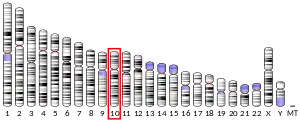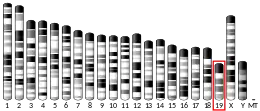| CYP26C1 | |||||||||||||||||||||||||||||||||||||||||||||||||||
|---|---|---|---|---|---|---|---|---|---|---|---|---|---|---|---|---|---|---|---|---|---|---|---|---|---|---|---|---|---|---|---|---|---|---|---|---|---|---|---|---|---|---|---|---|---|---|---|---|---|---|---|
| Identifiers | |||||||||||||||||||||||||||||||||||||||||||||||||||
| Aliases | CYP26C1, FFDD4, cytochrome P450 family 26 subfamily C member 1 | ||||||||||||||||||||||||||||||||||||||||||||||||||
| External IDs | OMIM: 608428 MGI: 2679699 HomoloGene: 28089 GeneCards: CYP26C1 | ||||||||||||||||||||||||||||||||||||||||||||||||||
| |||||||||||||||||||||||||||||||||||||||||||||||||||
| |||||||||||||||||||||||||||||||||||||||||||||||||||
| |||||||||||||||||||||||||||||||||||||||||||||||||||
| |||||||||||||||||||||||||||||||||||||||||||||||||||
| |||||||||||||||||||||||||||||||||||||||||||||||||||
| Wikidata | |||||||||||||||||||||||||||||||||||||||||||||||||||
| |||||||||||||||||||||||||||||||||||||||||||||||||||
CYP26C1 (cytochrome P450, family 26, subfamily c, polypeptide 1) is a protein which in humans is encoded by the CYP26C1 gene.[5]
This gene encodes a member of the cytochrome P450 superfamily of enzymes. The cytochrome P450 proteins are monooxygenases which catalyze many reactions involved in drug metabolism and synthesis of cholesterol, steroids and other lipids. This enzyme is involved in the catabolism of all-trans- and 9-cis-retinoic acid, and thus contributes to the regulation of retinoic acid levels in cells and tissues.[6]
CYP26C1 was found to show no expression in colorectal cancer cells or normal colonic epithelium.[7]
References
- 1 2 3 GRCh38: Ensembl release 89: ENSG00000187553 - Ensembl, May 2017
- 1 2 3 GRCm38: Ensembl release 89: ENSMUSG00000062432 - Ensembl, May 2017
- ↑ "Human PubMed Reference:". National Center for Biotechnology Information, U.S. National Library of Medicine.
- ↑ "Mouse PubMed Reference:". National Center for Biotechnology Information, U.S. National Library of Medicine.
- ↑ Taimi M, Helvig C, Wisniewski J, et al. (January 2004). "A novel human cytochrome P450, CYP26C1, involved in metabolism of 9-cis and all-trans isomers of retinoic acid". J. Biol. Chem. 279 (1): 77–85. doi:10.1074/jbc.M308337200. PMID 14532297.
- ↑
 This article incorporates public domain material from "Entrez Gene: CYP26C1". Reference Sequence collection. National Center for Biotechnology Information.
This article incorporates public domain material from "Entrez Gene: CYP26C1". Reference Sequence collection. National Center for Biotechnology Information.
- ↑ Brown, Gordon; Beatriz Cash; Daniela Blihoghe; Petronella Johansson; Ayham Alnabulsi; Graeme Murray (2014-03-07). "The Expression and Prognostic Significance of Retinoic Acid Metabolising Enzymes in Colorectal Cancer". PLOS ONE. 9 (3): e90776. Bibcode:2014PLoSO...990776B. doi:10.1371/journal.pone.0090776. PMC 3946526. PMID 24608339.
External links
- Human CYP26C1 genome location and CYP26C1 gene details page in the UCSC Genome Browser.
Further reading
- Deloukas P, Earthrowl ME, Grafham DV, et al. (2004). "The DNA sequence and comparative analysis of human chromosome 10". Nature. 429 (6990): 375–81. Bibcode:2004Natur.429..375D. doi:10.1038/nature02462. PMID 15164054.
- Rat E, Billaut-Laden I, Allorge D, et al. (2006). "Evidence for a functional genetic polymorphism of the human retinoic acid-metabolizing enzyme CYP26A1, an enzyme that may be involved in spina bifida". Birth Defects Res. A. 76 (6): 491–8. doi:10.1002/bdra.20275. PMID 16933217.
- Nelson DR, Zeldin DC, Hoffman SM, et al. (2004). "Comparison of cytochrome P450 (CYP) genes from the mouse and human genomes, including nomenclature recommendations for genes, pseudogenes and alternative-splice variants". Pharmacogenetics. 14 (1): 1–18. doi:10.1097/00008571-200401000-00001. PMID 15128046.
- Wan C, Shi Y, Zhao X, et al. (2009). "Positive association between ALDH1A2 and schizophrenia in the Chinese population". Prog. Neuropsychopharmacol. Biol. Psychiatry. 33 (8): 1491–5. doi:10.1016/j.pnpbp.2009.08.008. PMID 19703508. S2CID 32862839.
- Grupe A, Li Y, Rowland C, et al. (2006). "A scan of chromosome 10 identifies a novel locus showing strong association with late-onset Alzheimer disease". Am. J. Hum. Genet. 78 (1): 78–88. doi:10.1086/498851. PMC 1380225. PMID 16385451.
This article incorporates text from the United States National Library of Medicine, which is in the public domain.



